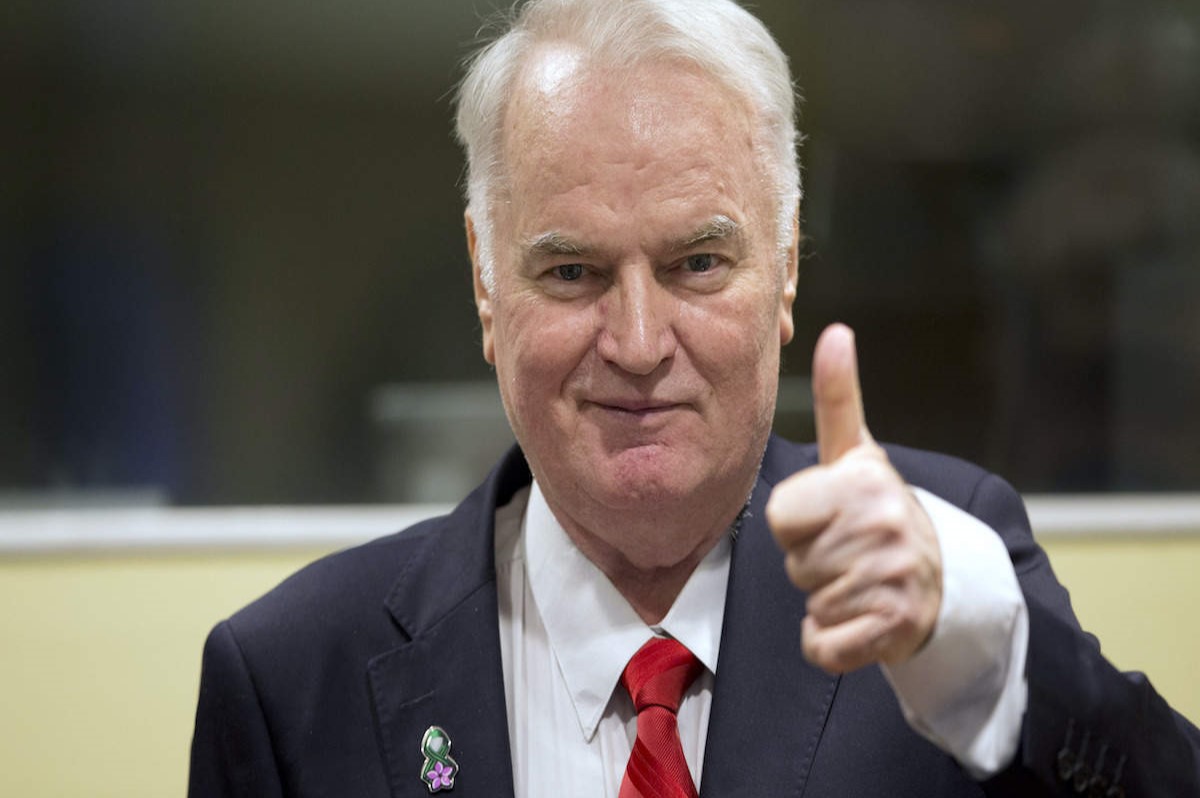
Ratko Mladić, a name that echoes through the corridors of history, is often associated with some of the darkest chapters of the Balkan conflicts. Known as the "Butcher of Bosnia," Mladić played a pivotal role during the Bosnian War, leading the Bosnian Serb Army. But who is Ratko Mladić really? This blog post dives into 18 compelling facts about his life, military career, and the controversial legacy he left behind. From his early days in the Yugoslav People's Army to his eventual capture and trial, these facts aim to provide a comprehensive look at a figure whose actions have left an indelible mark on modern history.
Who is Ratko Mladić?
Ratko Mladić, a name that echoes through the annals of history, is known for his role in the Bosnian War. As a military leader, his actions have left a lasting impact on the region and the world.
-
Ratko Mladić was born on March 12, 1943, in Božanovići, a village in Bosnia and Herzegovina. His early life was shaped by the turbulent history of the Balkans.
-
Mladić joined the Yugoslav People's Army (JNA) in 1965, where he quickly rose through the ranks due to his strategic acumen and leadership skills.
Role in the Bosnian War
Mladić's involvement in the Bosnian War is perhaps the most defining aspect of his life. His military strategies and decisions during this period have been the subject of extensive scrutiny.
-
In 1992, Mladić became the Chief of Staff of the Army of Republika Srpska, the Bosnian Serb Army. This position gave him significant control over military operations during the war.
-
He played a crucial role in the Siege of Sarajevo, one of the longest sieges in modern warfare, which lasted from 1992 to 1996.
-
Mladić is infamously known for his involvement in the Srebrenica massacre in July 1995, where over 8,000 Bosniak men and boys were killed. This event is considered one of the worst atrocities in Europe since World War II.
War Crimes and Trials
The international community has held Mladić accountable for his actions during the Bosnian War. His trials have been a focal point in the pursuit of justice for war crimes.
-
In 1995, the International Criminal Tribunal for the former Yugoslavia (ICTY) indicted Mladić for genocide, war crimes, and crimes against humanity.
-
Mladić evaded capture for many years, living in hiding and under assumed identities. His ability to avoid arrest became a point of frustration for international authorities.
-
He was finally arrested on May 26, 2011, in Lazarevo, Serbia, after 16 years on the run. His arrest was a significant moment in the pursuit of justice for the victims of the Bosnian War.
-
Mladić's trial at the ICTY began in May 2012. The proceedings were extensive, involving numerous witnesses and vast amounts of evidence.
-
On November 22, 2017, Mladić was found guilty of 10 of the 11 charges against him, including genocide, and was sentenced to life imprisonment.
Legacy and Impact
Mladić's actions and the subsequent trials have had a profound impact on international law and the collective memory of the Bosnian War.
-
The conviction of Mladić has been seen as a landmark moment in international justice, reinforcing the principle that those responsible for war crimes will be held accountable.
-
His trial highlighted the importance of international cooperation in capturing and prosecuting individuals accused of serious crimes.
-
Mladić's legacy remains controversial, with some viewing him as a war hero while others see him as a war criminal. This dichotomy reflects the deep divisions that still exist in the Balkans.
Personal Life and Background
Understanding Mladić's personal life provides additional context to his actions and decisions during his military career.
-
Mladić's father was killed by the Ustaše, a Croatian fascist organization, during World War II. This event had a profound impact on his worldview and later actions.
-
He married Bosiljka Mladić, and the couple had two children. His family life was often overshadowed by his military career and the controversies surrounding it.
-
Despite his notoriety, Mladić maintained a close-knit group of loyal supporters who helped him evade capture for many years.
Controversies and Public Perception
Mladić's life is riddled with controversies that continue to spark debate and discussion.
-
Some Serbs view Mladić as a defender of the Serbian people, believing his actions were necessary to protect their interests during the war.
-
Conversely, many in the international community and among the victims' families see him as a symbol of the atrocities committed during the Bosnian War, representing a dark chapter in European history.
Reflecting on Ratko Mladić's Legacy
Ratko Mladić's life and actions have left an indelible mark on history. Known as the "Butcher of Bosnia," his role in the Bosnian War and the atrocities committed under his command have been widely condemned. Mladić's trial and subsequent conviction for war crimes, including genocide, highlight the international community's commitment to justice. His story serves as a stark reminder of the horrors of war and the importance of accountability. Understanding Mladić's impact helps us grasp the complexities of the Balkan conflicts and the ongoing quest for peace and reconciliation in the region. As we reflect on his legacy, it's crucial to remember the victims and the enduring need for vigilance against such crimes. The lessons learned from Mladić's actions continue to shape our approach to international law and human rights.
Was this page helpful?
Our commitment to delivering trustworthy and engaging content is at the heart of what we do. Each fact on our site is contributed by real users like you, bringing a wealth of diverse insights and information. To ensure the highest standards of accuracy and reliability, our dedicated editors meticulously review each submission. This process guarantees that the facts we share are not only fascinating but also credible. Trust in our commitment to quality and authenticity as you explore and learn with us.


